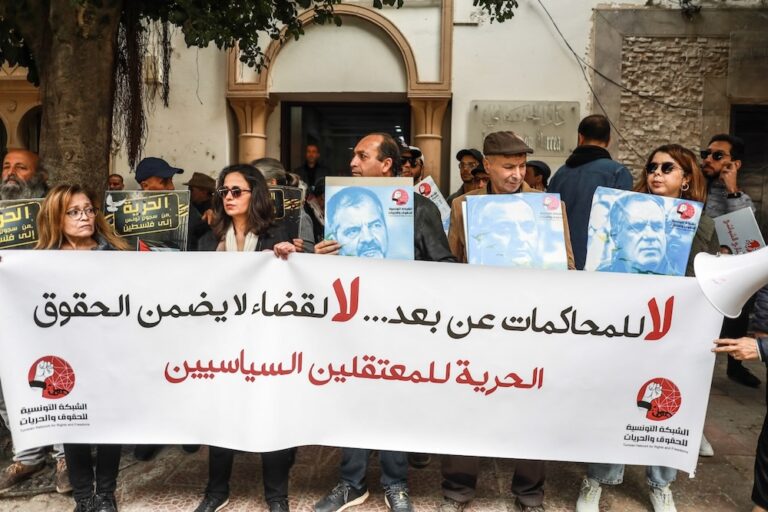The authorities should stop prosecuting critical journalists and put an end to this atmosphere of intimidation, says the IFJ.
(IFJ/IFEX) – February 18, 2010 – The International Federation of Journalists called on the Tunisian government to secure the freedom of journalists Tawfiq Ben Brik and Fahem Boukaddous and to end the “atmosphere of intimidation” which has descended over Tunisian journalism since last year’s Presidential elections.
The IFJ has also repeated calls for a new inclusive congress for the Syndicat National des Journalistes Tunisiens (SNJT), to end the divisions that have hampered the journalists’ community since the disputed congress last summer.
“The authorities should stop prosecuting critical journalists and put an end to this atmosphere of intimidation,” said Aidan White, IFJ General Secretary. “The media crisis means that Tunisian journalists must also act to resolve their divisions that have weakened the union’s ability to defend its members.”
The IFJ Executive Committee refused to endorse the August congress during their meeting in November and instead called for new inclusive elections to end the divisions.
Since last summer numerous journalists have been imprisoned, censored and harassed. Tawfiq Ben Brik was condemned to six months for assault in November where he was framed for his outspoken criticism of the government. His colleague Zoheir Makhlouf was jailed for three months and fined 3000€ for posting a report on the Internet about environmental, economic and social problems in an industrial district.
Fahem Boukaddous, correspondent for the satellite channel ‘Tunisian Dialogue’ received four years in prison for reporting on demonstrations in Gafsa in 2008. His appeal against the sentence is to be heard on the 23rd February 2010.
Two leaders of the SNJT elected in 2008 have been subjected to harassment. Neji Bghouri, SNJT President, was harassed and blocked from entering his place of work in December, while Zied-el-Heni, SNJT International Affairs officer, was assaulted in October and has had his blog repeatedly blocked and censored by the government.
The courts are set to rule on the legality of the SNJT Extraordinary Congress organized in controversial circumstances last summer on 1st March. “Regardless of the court decision, the divisions will only be properly healed through a new congress with the full participation of all Tunisian journalists,” added White.


